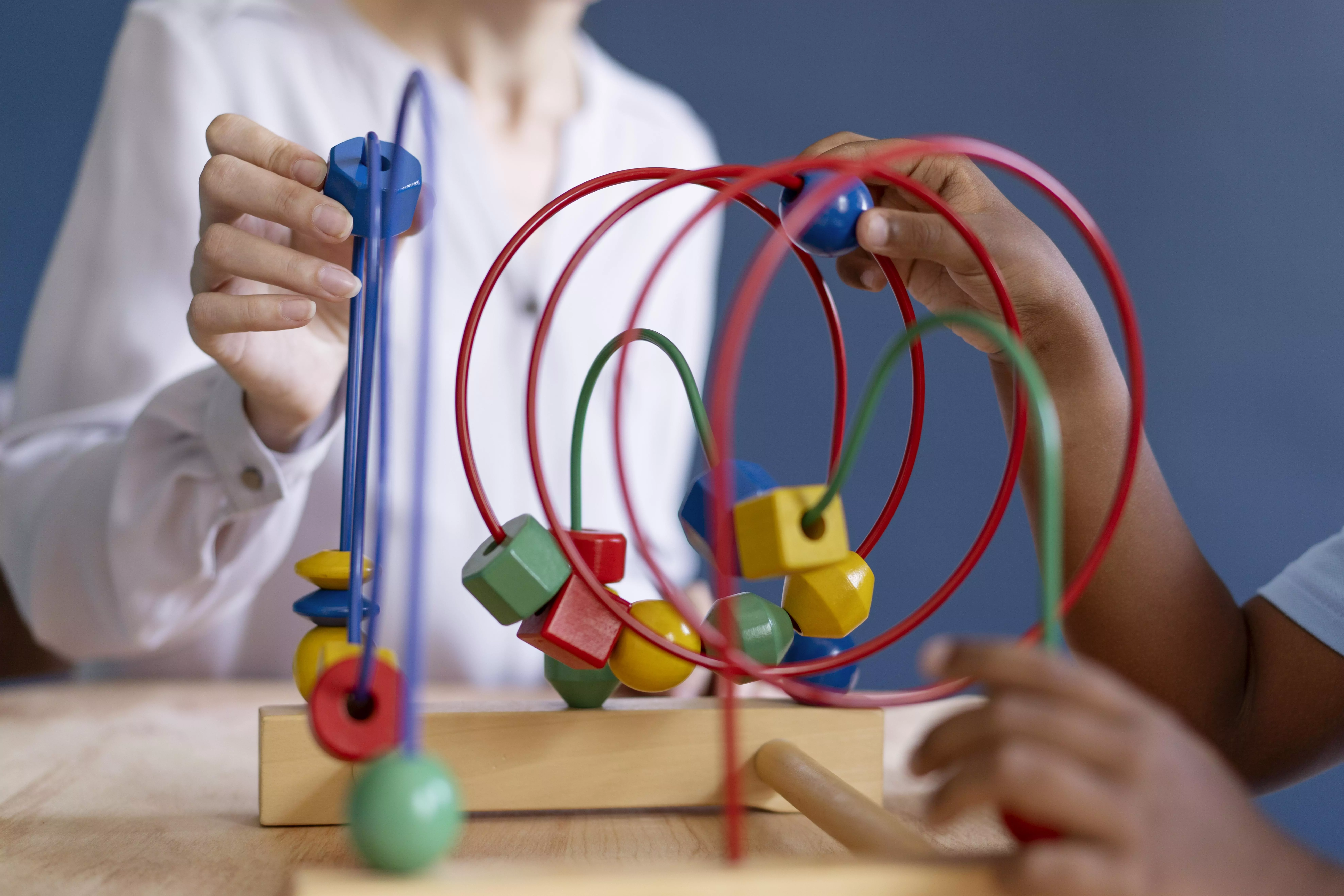What is Play Therapy?
The special function that focuses on children expressing their needs through games and toys is called play therapy. In a sense, ‘play therapy’ is for children, whereas ‘psychological counselling’ is for adults. Adults express their problems with words, and children with games. The therapist uses play, which is the child’s most natural way of saying himself, as a tool. Children also express their feelings to the therapist with the help of toys. With a trained play therapist creating a safe environment, children are encouraged to play however they want. During therapy, children are presented with various toys to express their emotional problems. Children have the chance to express themselves using various tools of play therapy such as art, sand and imagination.
Why is Play Therapy Done for Children?
Children cannot understand their emotions like adults, nor can they talk about their feelings like adults. That’s why therapy with adults is not suitable for children. When play is used as therapy for children, the child finds an environment to express his experiences and feelings. As part of their experiences during play, children recreate their anger, fears, sadness and disappointments, which affect their behavior. The advantage of play therapy is that children can create therapeutic play appropriate to their development. When children create games that reflect their stressful, intense, emotional experiences, the therapeutic relationship established between the therapist and the child is the most important element that makes the child feel safe.
What Happens in Play Therapy?
With the help of play therapy, children can create games that bring together the emotional events they struggle with in their inner world. The child generally cannot express these experiences verbally. The child chooses toys that reflect his emotional problems and creates his own game. The game begins with this statement, develops as the game progresses, and continues until you gain understanding and comfort with the problem.
How Does Play Therapy Help Children?
During the play therapy process, the child can change his/her perspective on events, his/her behavior and begin to enjoy his/her relationships with others. Children can change these experiences during the game by recreating the events in which they experienced disappointments during the game. Thus they can enjoy both the game experiences and the relationship exchanges in life.
What is the Process of Play Therapy?
The play therapy process depends on various factors regarding the child’s past and present experiences. The two most important factors are the developmental stage of the child and, if there is any trauma, the age at which the trauma occurred. Generally, the sooner you come to therapy after the incident, the shorter the therapy period.
Play Therapy is Different from the Play Children Play at Home
At home or in therapy, the essential function of play remains the same. For children, play is a natural way of communication in which they rehearse the world they live in and human relationships. Play has three functions: The first two are conceptual and physical development, and the other is emotional expression. With a trained play therapist, play serves an emotional purpose. This plays an important role in the balance of the child’s health.
How Can Parents Participate in Play Therapy?
The contribution of the family is the most important element in play therapy. Meetings between the family and the play therapist continue regularly. If the therapist deems it appropriate, he sometimes invites the family to the game. In addition, the therapist gives families advice that will help their child’s healing process during therapy and that they can apply outside the therapy room.
How to Determine Whether Children Need Play Therapy?
Some children may go through a difficult time at some times in their lives. For example, separation of parents, difficulty in making friends, inability to adapt to changes at school or at home, irritability, introversion, etc. Some children may need more help than other children in such periods. If you are having problems communicating with your child or think there are problems with some of his or her behaviors, play therapy can help you and your child.
What are some of the psychological problems that play therapy can help with?
• Post-Traumatic Stress Disorder
• Emotions such as anxiety, sadness, fear and anger are above normal.
• Attention deficit and hyperactivity
• Acting in ways that may hurt others or oneself
• Overreacting when mother/father separates – social withdrawal
• Lack of confidence/depression
• Difficulty adapting to changes in the family
• Unexplained headache and abdominal pain





